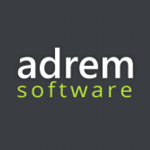What is our primary use case?
Enterprise Manager is a single window plane of glass which allows one to look into every aspect of the systems deployed in an organization. We use it to mange our internal infrastructure, including Oracle Exadata, Oracle Exalytics, Oracle VMs, ERP solutions (such as Oracle Applications and Fusion Middleware, like SOA and AIA), and Oracle Linux servers.
How has it helped my organization?
This solution allows us to quickly drill down when there are issues. It helps us monitor solutions both in-house and at our customer premises. We use it extensively for performance tuning testing, monitoring, and configuration.It is also the only tool that can monitr all apects of Exadata , Exalogic and other Oracle engineered systems.
What is most valuable?
The database performance monitoring features are very useful and allow us to quickly zero in on DB-related issues.Exadata storage server and Infiniband switches can be viewed from the GUi in OEM which cannot be done in other tools . The ability to deploy metric extensions makes this tool extensible for our custom monitoring also.
What needs improvement?
The product is pretty comprehensive, but quite resource hungry. This might be due to the majority of the application seemingly being written in Java.
Also, better mobile access would be useful.
For how long have I used the solution?
What do I think about the stability of the solution?
There were some issues with the software due to its resource requirements. Be careful to follow the recommended sizing guidelines.
What do I think about the scalability of the solution?
No issues. It is very scalable. Ther are also comprehensive documents for both HA setup and DR setup. One caution is that for DR setup additional licensing is required.
How are customer service and technical support?
We have not faced any major issues with the product. Auto deployment may be difficult in certain customer environments due to the firwall port issues but in those cases manula deployment of agents is an acceptable workaround. We originally had some timezone related issues due to the fact that my home timezone changed from Asia/Calcutta to Asia /Kolkata but this is no longer an issue
Which solution did I use previously and why did I switch?
Oracle Enterprise Manager is the only solution which can monitor and drill down into the inner workings of engineered systems, like Exadata and Exalytics. Thus, we had to use this system when we deployed those systems. Being system integrators we work with a wide variety of tools however this tool has very wide support across all of oracles hardware and software.
How was the initial setup?
Setup can be complex depending on the options required. There is a simple express install and a much more elaborate enterprise class setup, which is also possible.
What about the implementation team?
Our in-house team has the capability to implement this (with customers).
What was our ROI?
This solution was the only one which allows us to monitor all our solutions from one interface. However, the optional packs are expensive, hence your mileage may vary. Please take advice before choosing what exactly to purchase. Remember that the base configuration is free to monitor any Oracle product.
What's my experience with pricing, setup cost, and licensing?
Evaluate your requirements carefully. Elaborate DR and HA setup of OEM can become expensive.
Be careful to only enable the packs for which you have a license as this is an issue we see time and again. I.e., customers who do not understand the licensing model have not turned off access to packs that they are not licensed for, then get into legal issues for it later.
Which other solutions did I evaluate?
None of the other options out there have the breadth and depth of this solution. This is the only solution which can drill down to the cell level of an Exadata system. Finally, it has modules available for almost every Oracle product available.
What other advice do I have?
If you are an Oracle shop, or even an Oracle SI, then familiarity with Oracle one stop management solution is an imperative. Everything ties into this solution, so it has become a de facto standard for Oracle-based software given that the base is free to use with Oracle products. There is no downside to deploying this solution in your data center.
Which deployment model are you using for this solution?
On-premises
If public cloud, private cloud, or hybrid cloud, which cloud provider do you use?
Other
Disclosure: My company has a business relationship with this vendor other than being a customer. We are Diamond and Cloud Elite partners of Oracle and work as a system integrator for this and other products.



















OEM helps monitor across heterogenous systems which is key for big companies with various prod environments.